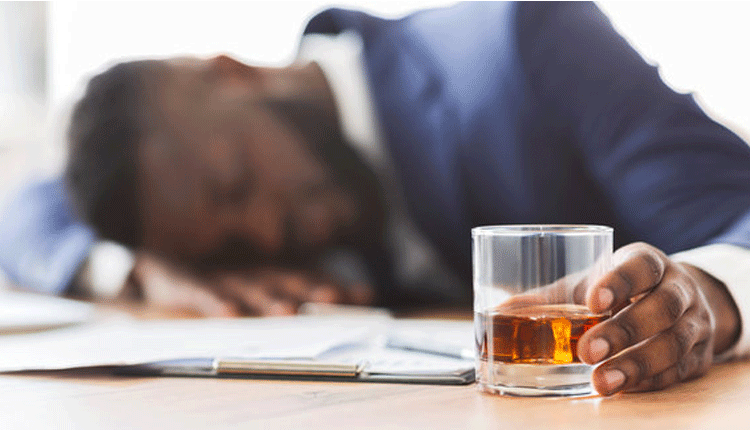Sex, drugs, sleep and other stress coping mechanisms

We all deal with stress in different ways. Some people sleep for days and refuse to move, others go out and binge drink or binge eat for a few days straight, others go to a place where they do not need to think about their lives, which may be an ex’s or a stranger’s bed, while others book a flight and wake up in a different country fully hopped up on drugs and not remembering how they got there.
All these are different ways that people tend to cope with their problems. Sarah Wangalwa, a counselling psychologist and founder of Mentally Serene Hub describes coping mechanisms as either healthy or unhealthy conscious or unconscious responses that we use to decrease the tension and anxiety that results from a stressful experience or situation.
Healthy and unhealthy mechanisms
Healthy coping mechanisms are responses that help one adjust to and deal with stressful events while at the same time helping them maintain their emotional and physical well-being.
They include seeking support from friends, psychologists, and life coaches to deal with the stressors, exercising, relaxation activities including meditation, and taking healthy breaks when one feels emotionally overwhelmed.
Unhealthy coping mechanisms involve self-destructive responses and behaviour that may result in aggravated stress and emotional pain.
They include stress eating, drug and substance use, long hours of sleep, self harm, risk-taking, and compulsive behaviour such as gambling, theft, reckless driving, and unsafe sex.
Coach Vuyanzi Rod, a personal development coach and motivational speaker wholly agrees with Sarah.
“Coping mechanisms are ways that people deal with pain and difficult situations.
From my observation of my coaching clients, I have seen different people use different coping mechanisms.
Some use task- avoidance such as procrastination to cope with stress or the fear of failure, others distance from the problem through denial or humour, more people numb themselves against the problem through food, alcohol, or sex, while a few persevere through the discomfort of stress and leverage constructive coping mechanisms such as meditation and mindful practices.
Many people deal with different situations in different ways mainly because of the experiences that form the basis for both conscious and unconscious decisions, the work they have done on themselves, and individual perspectives.
We are living in increasingly difficult times that require us to develop different coping mechanisms over time regardless of our formative experiences.
Healthy coping mechanisms have never been more important,” coach Vuyanzi shares.
But one cannot tell if they are dealing with stress in a healthy or unhealthy way unless they examine their lives and develop self-awareness.
Coach Vuyanzi suggests one ask themselves a few questions to evaluate if their coping mechanisms are healthy.
What are the results of your coping mechanisms? Do you find yourself drunk in someone else’s bed who you may not know every time you have a life crisis?
Do you call your drinking buddies to go for a pint every time you fight with your girlfriend? Where and what do you do when life gets hard?
Is it to a still peaceful place from where you can consider all your options? What is the outcome of your actions?
Do you simply create more problems on top of the ones you already have or do you resolve the ones you have?
The outcome is what determines whether your coping mechanisms are healthy or not.
It is important to remember that pain and difficult situations will come, how you deal with them is what will determine your quality of life.
A healthy coping mechanism can produce a change in your personal life as well as in the lives of those with whom you associate.
Sarah shares that self-awareness is the first step towards identifying bad coping mechanisms and slowly replacing them with good coping mechanisms.
Self-awareness is key
“Self-awareness can be developed by tracking activities that one turns to when in distress, evaluating whether those activities control your life or result in addiction or negative consequences, and developing a personal inventory of positive and negative habits that result from stressful situations.
Unhealthy coping mechanisms can be avoided by confronting individual fears and seeking solutions rather than routes of escaping from the stressors.
You should also maintain a positive outlook and positive lifestyle and persevere rather than seek instant relief through unhealthy coping mechanisms.
Further managing individual expectations and being aware of personal limits can help individuals to learn and exercise positive means of dealing with stress and handling different stressors,” Sarah sagely advises.
Coach Vuyanzi in conclusion says, “To develop better and healthier coping mechanisms, acknowledge the state in. Recognise the results and impact it has in your life.
Make a list of more constructive ways of managing your pain or difficult situation.
Try these things out, be honest with yourself about what feels right to you individually. Finally, consider support to help you deal with your ongoing difficult situation.”








